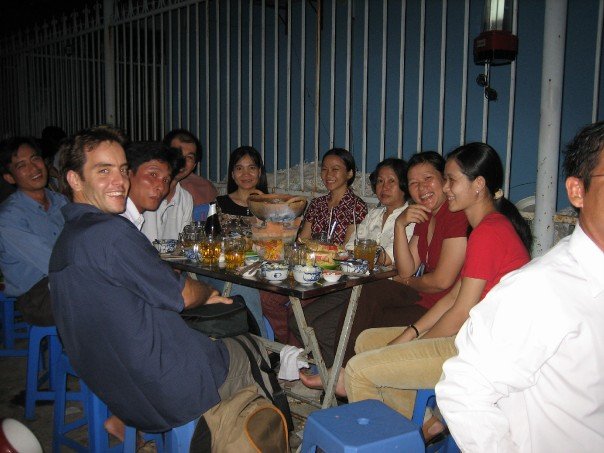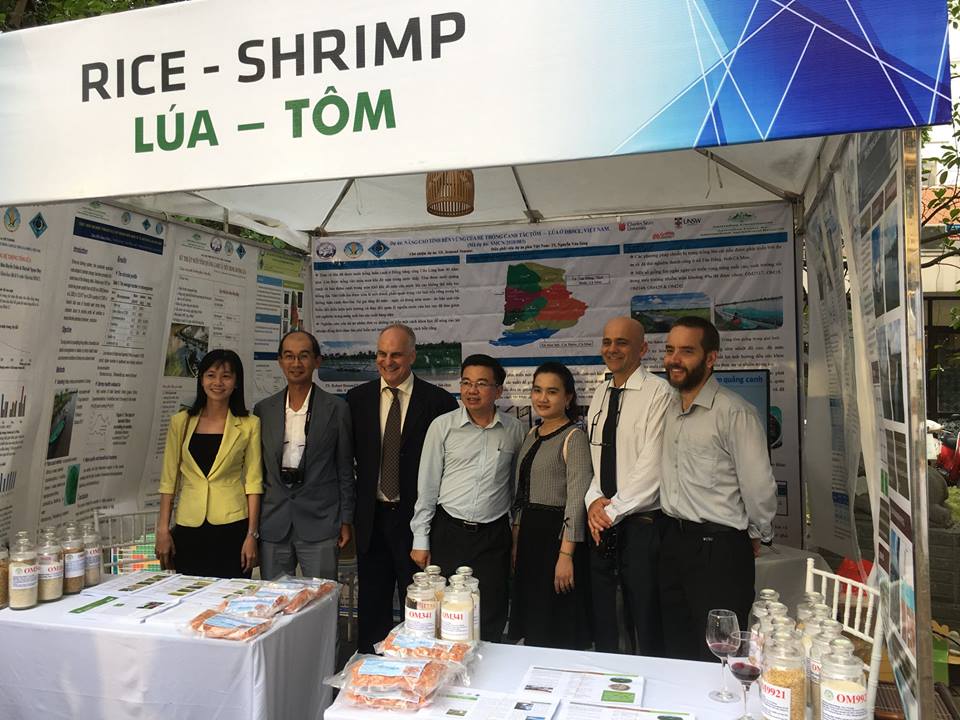Making Opportunities
In the absence of a fantastically clear career plan (which very few people actually have), what you do for a living and where you work can be the result of taking opportunities as they come, shaping your future one step at a time. However, we all have the chance to make opportunities rather than wait for luck to occur and making your opportunities puts you in the driver’s seat of your career.
So how do you turn an interest in international agricultural research into a career? Let’s outline a pathway to international agricultural research, we will start at an undergraduate level but you can join the journey from where it is you find yourself now.
Undergrad opportunities – developing foundation knowledge, opportunities to gain experience, opportunity to study Honours overseas
That you are reading this is evidence you are already thinking about working in agricultural research but perhaps you haven’t got a target country/region or research discipline yet. Interest in a country or region could develop from your experience as a tourist or from reading or watching documentaries. If you have a country of choice, google search to find researchers doing work there (the ACIAR webpage would be a great start), read their publications, are you able to meet with them to find out more about their work? If you have no particular interest in any one country then your scope for opportunities is broad. Either with a country focus or not, you will need to develop some research skills and experience before you go overseas.
One of the best ways to develop interest in a discipline area is to try some out. If you have a good undergraduate course you will be exposed to a range of agricultural disciplines, seek opportunities to help out in research projects of your lecturers. If your lecturers are going well in their careers, they will have projects on the go on which you can help out and gain some research experience. This could be the spark that lights the fire. If not, try another discipline. This domestic experience is a really important stage. Probably most importantly, it allows your lecturer to see your character and build their confidence in you, making you an attractive option for a future honours student. The research experience allows you to build confidence in yourself and develop an interest in research.

Building friendships – sabbatical 2006 in Can Tho, Vietnam. The relationships built during such opportunities are the foundation to bigger things.
Honours – formal research training, opens the door to higher degree or volunteer opportunities
Honours is an important training opportunity. The experience is tailored to you, the student by your supervisor. As an academic, it is pretty easy to create honours student projects that have overseas research components however I would only do that for students that have demonstrated the characteristics required to work overseas (resilience, planning, empathy, communication, reliability, responsibility, a good sense of humour!). So look for opportunities to engage with lecturers to demonstrate these attributes. Most universities will have mechanisms in place to support international placement and help fund your project and/or travel so this is probably the best way to gain international agricultural research experience in a supported and structured way. What’s more, an Honours project located overseas allows you to establish relationships with international researchers at all levels. These relationships will be the foundation of future collaboration.
Graduation – continuing the development of research experience
OK here is the problem – There are not many funded postgraduate degree opportunities for Australians to conduct higher degree research overseas. Actually, I don’t know of any formal mechanisms. So you need to be a bit creative now.
- seek volunteer opportunities for 6-12 months use your own network overseas that you have developed during Honours, if you do not have that, you need to look for ways to establish linkage with people who are doing work overseas (use the RAID network or ACIAR webpage to identify project leaders that may have positions for you). Volunteer experience demonstrates a higher level of interest and motivation in research for development (it allows you to build collaboration relationships overseas).
- Seek higher degree studies that may allow some work overseas (even if you have to fund the travel yourself). This will maintain the relationships built. You may be able to conduct some of your higher degree field work overseas as part of a volunteer program. Linkages with researchers overseas will be vital in finding and cultivating such opportunities. Having a higher degree and international research experience (and the relationships that go with that) makes you pretty special. You have attributes not common to Australian PhD graduates. The next step is to ensure people know who you are and what you have done. But what people? The people who may have opportunities for you, people that have projects in the discipline and regional areas in which you want to work (ACIAR, RAID, Universities). Create the relationships and build them

Involvement in ACIAR projects provided great gains in experience, access to mentors and allowed opportunities for Vietnamese and Australian researchers and students alike.
Postdoc- building your research portfolio
A postdoctoral position on an overseas project is a major step. All the opportunities to date have led you to this point. From here, project leadership lies ahead and your experience and reputation will open more doors and create many more opportunities for you. The difficult part may be in selecting which ones to take. Seek out mentors that can help you navigate from this point. The international agricultural scene is a great place to seek mentors as I would say that researchers in this space tend to be very supportive and interested in developing other people.
I have been fortunate to have been able to be involved in soils research in Vietnam since 2006 but my experience there has been accumulated from a series of opportunities that I created. The one common thing to all the opportunities that they come from the relationships built along the way. Take time to learn from people, ask a lot of questions. The learning can be technical, cultural, personal, all these things allow you develop empathy, understanding, experience and allow you to find your place and direction forward. The interaction with people is the rewarding part of international agricultural research look for opportunities to build the relationships required.
About Jason
I first travelled to Vietnam as a tourist whilst doing my PhD at Charles Sturt University part-time and lecturing part-time. As Lecturer in Soil Science at CSU I was able to do a 6 month sabbatical in Vietnam at Can Tho University (CTU) in 2006 (an opportunity found from contacting a CTU researcher that had published several papers of relevance to my research). Following this, I led CSU student tours to Vietnam in 2009, 2010, 2011 to maintain links with CTU colleagues and allowed honours opportunities for CSU students (these then led to higher degree opportunities for those students. From 2012 until now I have been involved in an ACIAR project led by UNSW working in rice/shrimp farming systems. We have had scientist exchanges from CTU to CSU during this time allowing more relationships to be developed. I am currently leading the development of a new ACIAR project in the Mekong looking at soil and crop options to handle the increasing salinity risks associated with climate change in the delta.


